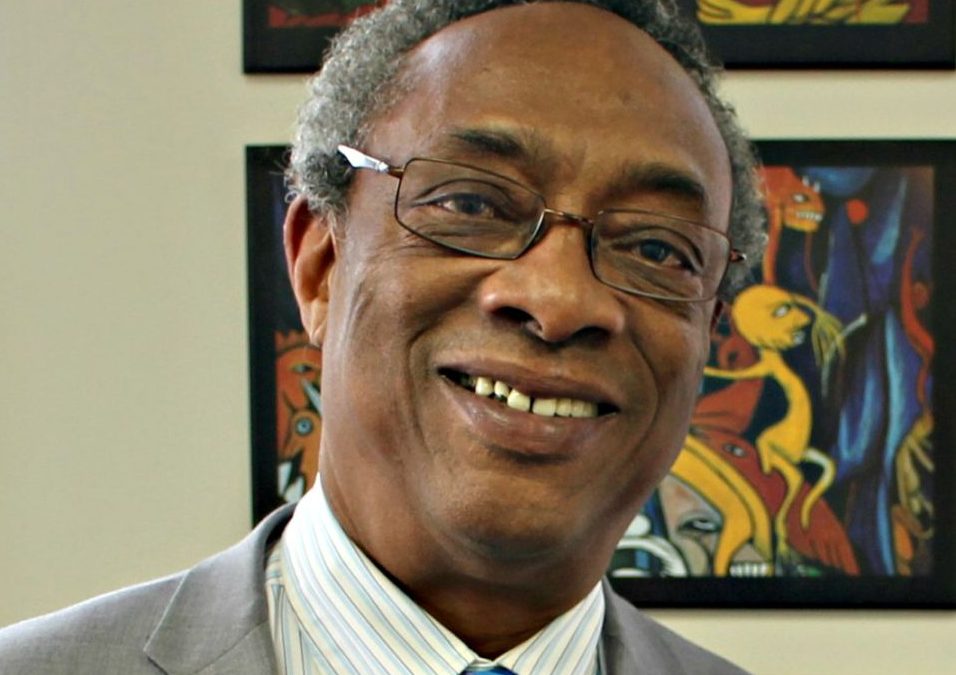In a recent column, Le Droit’s Patrick Duquette called a Donald St. apartment complex, where many Syrians live, a ghetto and a ticking time bomb. (Story here)
He reports that Syrians are unhappy with the pace of settlement, the lack of job opportunities, language training and more.
As executive director of the organization that has settled the majority of Syrian refugees in Ottawa, and as an immigrant, I’d like to offer a different portrait.
It’s understandable Syrians want to get on with their lives. The daily challenges are at times overwhelming. We’re not surprised. We expected it. It’s what we call the settlement trajectory. And every newcomer community in Ottawa’s history has experienced it.
In 1979-80, this city welcomed 4,000 southeast Asians (mostly Vietnamese), better known as The Boat People. That’s double the number of Syrians we welcomed in early 2016.
Life was challenging. Learning English was difficult, some people didn’t have a lot of education. Many took jobs they were over-qualified for because they had rent to pay and children to raise. But they were determined to rebuild their lives.
So where is the Vietnamese ghetto in Ottawa today? Unless you are of a certain age, you would be hard-pressed to even remember where they were initially housed.
Some of the concerns shared in the column are not new. For example, Mr. Duquette writes Donald Street is referred to as Little Syria because the Syrians are sticking together. So, too, did the Italians when they arrived in the first half of the 1900s. So, too, did a lot of other communities over the last century.
Many us stick to a community and culture we are innately familiar with. Living with people of a similar culture and language is comforting. It just doesn’t happen with refugees and immigrants. You can go to almost any country in the world and you will find a Canadian ex-pat community. These Canadians are not refugees and yet they find comfort by connecting with other Canadians while they slowly adjust to a new culture in a strange country. Sticking to your own community does not make a ghetto.
I don’t write this to minimize any of the concerns, fears and frustrations the Syrians expressed to Mr. Duquette, but instead to normalize these settlement challenges.
Many Syrian families left loved ones behind. They are frustrated with their inability to reunite with family members. Some are struggling from PTSD; others are coping with children who have disabilities or loved ones who were injured in the war. They want better housing, better job opportunities, and easier access to community services. They are a little more than two years removed from a culture and a country they called home for all of their lives.
But these frustrations do not make a ticking time bomb.
We promise you, life will get easier. The challenges will lessen and give way to lives that are more manageable and more like the lives you see Canadians experience.
Some are already experiencing it. Syrian refugees have opened furniture repair shops, catering businesses, restaurants, joined charities and so much more. Rabea, one of my colleagues, works full-time and just finished his Master’s degree in Education. Noor, another colleague, recently attained his commercial pilot’s licence. The Syrian community held its first Syrian Canadian Donation Day in April. Hundreds of Syrians in 10 cities across the country took a day to give blood at their local blood banks. Another Syrian teaches art to children and was part of a group that raised more than $5,000 for CHEO.
We think the Syrians know the future is bright for them and their children. Here’s what one Syrian said to Mr. Duquette.
“It’s a lot better for our children than for us. They go to school, they learn the language, they are real sponges …”
Like the children of the Vietnamese refugees 40 years ago, the Syrian youth will thrive and we will not even see them as children of refugees. We will just see them as everyday Canadians. And that’s how they will see themselves.
Today, many Syrian adults speak Arabic fluently, and speak passable to good English. Already, their children speak Arabic and English fluently with little hint of an accent. Their mother tongue of their grandchildren will be English or French.
We believe Mr. Duquette was genuinely concerned by what he saw and heard at Donald St. But it was a selective glimpse at an unfinished canvas.
We invite Mr. Duquette to join our numerous staff members who work every week with refugees living on Donald St. He would meet people from the Congo, Burundi, Somalia and Canada. He would meet Syrian hockey players who skate for the Gloucester Cougars. If he walked down the street to the nearby park, he would meet Syrian girls and boys playing in our youth soccer league. No cracked pavement here.
He would meet Syrians, and other refugees, who are extremely optimistic about their children’s futures despite their own daily challenges.
He could join us for our weekly English class we host on site or join us on one of the numerous field trips we organize to introduce newcomers to their community.
We believe it takes the whole community to truly settle and integrate newcomers. It takes a community of everyday people helping newcomers with everyday activities.
Mr. Duquette, you are part of that community. Please come visit again. Perhaps this time you could stay a little longer and hear more of the settlement story.
Carl Nicholson is the Executive Director of the Catholic Centre for Immigrants

